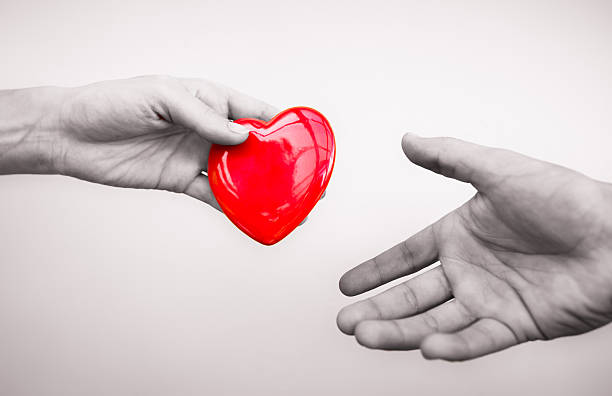The Importance of Blood Donation: Contributing to the NHS
Blood donation is a critical act of kindness that saves countless lives every day. Within the National Health Service (NHS), blood donation plays an integral role in patient care, emergency responses, and ongoing medical treatments. The process of donating blood is straightforward and highly rewarding, offering a way for individuals to make a substantial impact on public health.
Why Donate Blood?
Donating blood is one of the simplest yet most profound ways to give back to the community. Every unit of blood donated can save or significantly improve the lives of up to three individuals. Blood is essential for surgeries, cancer treatment, chronic illnesses, and traumatic injuries. The NHS relies heavily on a steady supply of blood to ensure that hospitals and clinics can provide life-saving care whenever it is needed.
Blood donations are crucial for:
- Accident and Emergency Situations: In emergencies such as car accidents, severe burns, or other traumatic injuries, blood transfusions can mean the difference between life and death.
- Surgical Procedures: Many surgical procedures require blood transfusions to replace blood lost during surgery, supporting patient recovery and health.
- Cancer Treatments: Patients undergoing chemotherapy or radiation therapy often need blood transfusions due to the treatments' impact on their blood cells.
- Chronic Conditions: Individuals with conditions like sickle cell anemia or thalassemia depend on regular blood transfusions to manage their health.
The Blood Donation Process
The blood donation process is designed to be safe, efficient, and comfortable for donors. Here’s a step-by-step overview of what to expect when you decide to donate blood to the NHS:
Registration
Upon arrival at the donation center, you will register with your personal details and provide identification. This information helps ensure that your donation is processed correctly and safely.
Health Screening
Before donating, you will undergo a brief health screening. A medical professional will check your vital signs, including your blood pressure, pulse, and hemoglobin levels. You will also complete a questionnaire about your medical history and current health status to confirm your eligibility to donate.
Donation
The actual blood donation typically takes about 10-15 minutes. You will be seated comfortably while a sterile needle is used to collect approximately one pint of blood from your arm. The entire process, including registration and post-donation rest, usually takes around an hour.
Post-Donation Care
After donating, you will be asked to rest for a short period and offered refreshments to help replenish your energy levels. It's important to stay hydrated and avoid strenuous activities for the rest of the day.
Who Can Donate Blood?
Most healthy adults can donate blood, but there are some eligibility requirements to ensure the safety of both donors and recipients. Generally, you can donate blood if you are:
- Between the ages of 17 and 65
- Weigh at least 50 kg (110 lbs)
- In good general health
Certain conditions may temporarily or permanently prevent you from donating blood, such as recent travel to certain countries, certain medical conditions, or certain medications. The health screening process will help determine your eligibility.
Benefits of Donating Blood
Donating blood is not only beneficial for those receiving the blood but also for the donors themselves. Some of the benefits include:
Personal Satisfaction
Knowing that your donation can help save lives provides a profound sense of personal fulfillment and altruism. It's a simple yet powerful way to make a difference in your community.
Health Monitoring
Regular blood donations include health checks that can help you monitor your own health. Conditions like high blood pressure or low hemoglobin levels can be identified early during the pre-donation screening process.
Blood Regeneration
When you donate blood, your body works to replace the lost blood, which stimulates the production of new blood cells. This process can help maintain healthy blood levels and circulation.
Community Impact
Blood donors play a crucial role in the healthcare system. Your donation helps ensure that there is a sufficient blood supply for hospitals to respond to emergencies and perform necessary treatments.
The Need for Diverse Blood Donors
Diverse blood donations are particularly important to meet the needs of all patients. Certain blood types are more common in specific ethnic groups, and some patients require closely matched blood types for transfusions. For example, individuals with sickle cell disease, which predominantly affects people of African, Caribbean, and Asian descent, often need blood from donors of the same ethnic background to reduce complications.
By encouraging a diverse range of donors, the NHS can better match blood types and improve outcomes for patients with specific needs.
How to Prepare for Blood Donation
Preparing for a blood donation can help ensure a smooth and positive experience. Here are some tips to get ready for your donation day:
- Stay Hydrated: Drink plenty of fluids before your donation to ensure that you are well-hydrated.
- Eat a Healthy Meal: Have a balanced meal before donating to help maintain your blood sugar levels.
- Get Plenty of Rest: Ensure that you are well-rested before your donation appointment.
- Wear Comfortable Clothing: Wear clothing with sleeves that can be easily rolled up.
- Bring Identification: Bring a form of ID and any necessary paperwork for your donation.
Blood Donation and COVID-19
The COVID-19 pandemic has highlighted the importance of maintaining a stable blood supply. The NHS has implemented stringent safety measures to protect donors and staff during the pandemic. These measures include enhanced cleaning protocols, social distancing, and health screenings.
Individuals who have recovered from COVID-19 may also be eligible to donate convalescent plasma, which contains antibodies that could help treat patients currently battling the virus.
Frequently Asked Questions About Blood Donation
How often can I donate blood?
You can donate whole blood every 12 weeks if you are male and every 16 weeks if you are female. This allows your body enough time to replenish the donated blood.
Can I donate blood if I have a tattoo or piercing?
Yes, but you must wait four months after getting a tattoo or piercing before you can donate blood. This waiting period helps reduce the risk of infection.
What should I do if I feel unwell after donating blood?
If you feel unwell or experience any unusual symptoms after donating blood, it is important to contact the donation center or seek medical advice promptly.
Can I donate blood if I am taking medication?
Certain medications may affect your eligibility to donate blood. During the health screening process, you will be asked about any medications you are taking to determine if it is safe for you to donate.
Encouraging Others to Donate
Spreading awareness about the importance of blood donation can help encourage others to become donors. Sharing your own positive experiences, discussing the benefits, and highlighting the constant need for blood can inspire friends, family, and colleagues to donate.
Blood donation drives and community events are also effective ways to mobilize groups of people to donate. By working together, communities can ensure that there is a robust and reliable blood supply for those in need.
Conclusion
Blood donation is a simple yet powerful act that has a profound impact on the health and well-being of others. The NHS relies on generous donors to provide the life-saving blood needed for surgeries, treatments, and emergencies. By understanding the process, preparing appropriately, and encouraging others to donate, you can play a vital role in supporting the healthcare system and saving lives.
Remember, every donation counts and makes a difference. Consider becoming a regular blood donor and contribute to the collective effort to maintain a healthy and sufficient blood supply for the NHS. Your donation is a gift of life that can provide hope and healing to patients in need.




